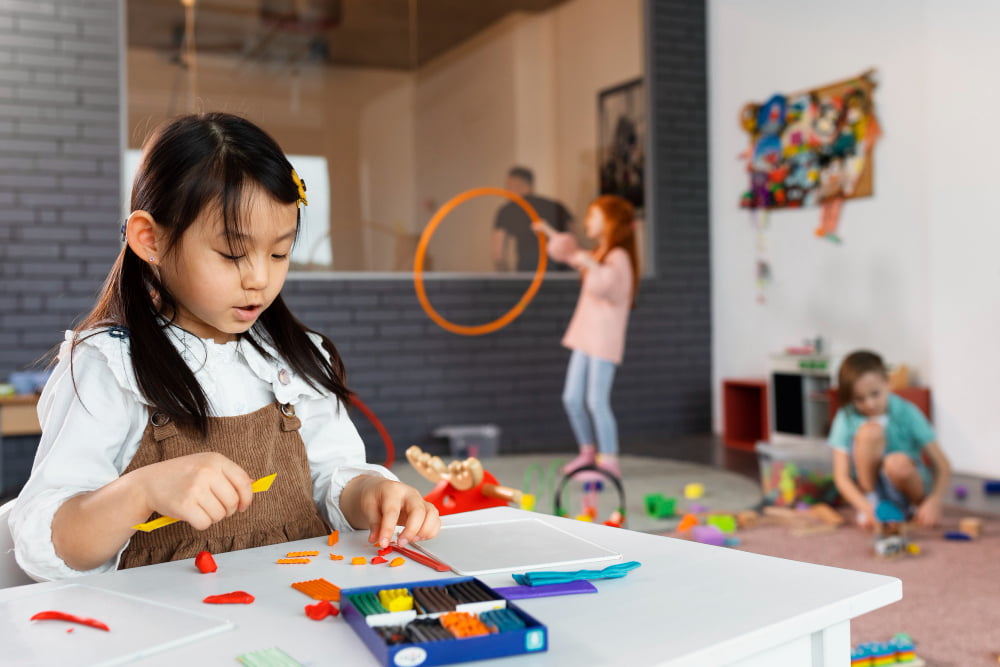
08 Mar Introduction to Montessori Education
Montessori education is a unique approach to learning that was developed by Dr. Maria Montessori, an Italian physician and educator. This method of education is focused on creating an environment that fosters the natural curiosity and independence of children, allowing them to learn at their own pace and in their own way.
Montessori education is based on the belief that children are naturally curious and that learning should be an active, hands-on experience. It is designed to help children develop independence, self-confidence, and a love of learning. In Montessori classrooms, children are encouraged to explore their environment and to learn through play and discovery.
One of the key features of Montessori education is the use of specially designed materials that are intended to be self-correcting. These materials allow children to learn by doing and to discover their own mistakes. For example, a child might work with a set of blocks to learn about shapes and spatial relationships. The child can arrange and rearrange the blocks, learning about the concepts of size, shape, and spatial relationships in the process.
Another important aspect of Montessori education is the use of multi-age classrooms. In Montessori classrooms, children are grouped together based on developmental stages, rather than by age. This allows younger children to learn from older children and older children to develop leadership skills and empathy.
Montessori classrooms are also designed to be calm and peaceful environments. Teachers are trained to be observers, rather than lecturers, and to allow children to learn at their own pace. Children are encouraged to take responsibility for their own learning and to work independently.
One of the criticisms of Montessori education is that it is not standardized and does not follow a set curriculum. However, supporters of the Montessori method argue that this allows children to learn in a way that is tailored to their individual needs and interests.
In conclusion, Montessori education is a unique approach to learning that emphasizes independence, self-confidence, and a love of learning. It is based on the belief that children are naturally curious and that learning should be an active, hands-on experience. Montessori classrooms are designed to be calm and peaceful environments that encourage children to explore their environment and to learn through play and discovery. While it is not a standardized approach to education, supporters of the Montessori method argue that this allows children to learn in a way that is tailored to their individual needs and interests.
Regenerate response

No Comments